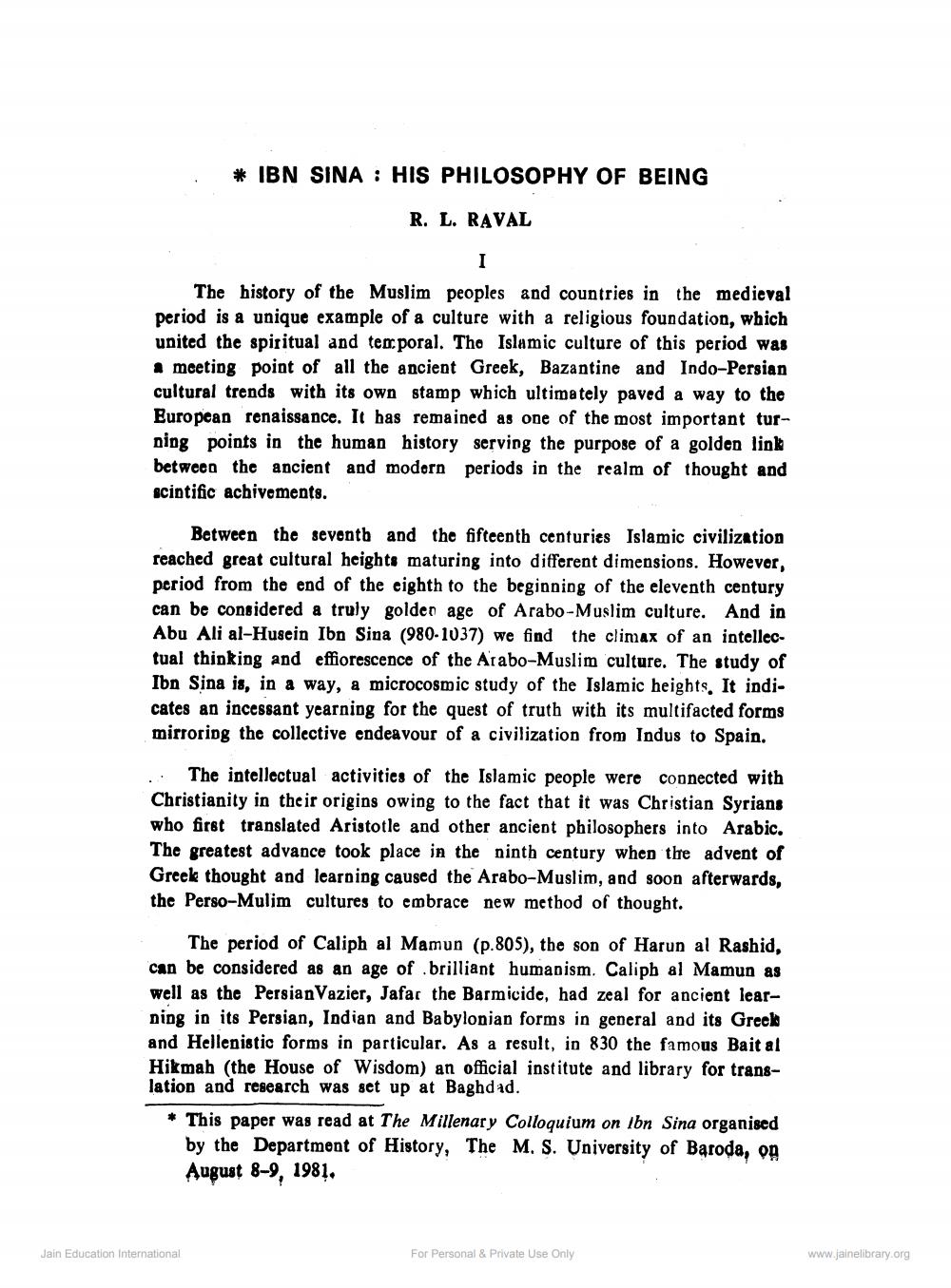________________
* IBN SINA : HIS PHILOSOPHY OF BEING
R. L. RAVAL
Ι The history of the Muslim peoples and countries in the medieval period is a unique example of a culture with a religious foundation, which united the spiritual and terrporal. The Islamic culture of this period was a meeting point of all the ancient Greek, Bazantine and Indo-Persian cultural trends with its own stamp which ultimately paved a way to the European renaissance. It has remained as one of the most important turning points in the human history serving the purpose of a golden link between the ancient and modern periods in the realm of thought and scintific achivements.
Between the seventh and the fifteenth centuries Islamic civilization reached great cultural heights maturing into different dimensions. However, period from the end of the eighth to the beginning of the eleventh century can be considered a truly golden age of Arabo-Muslim culture. And in Abu Ali al-Husein Ibn Sina (980-1037) we find the climax of an intellectual thinking and effiorescence of the Arabo-Muslim culture. The study of Ibn Sina is, in a way, a microcosmic study of the Islamic heights. It indicates an incessant yearning for the quest of truth with its multifacted forms mirroring the collective endeavour of a civilization from Indus to Spain.
... The intellectual activities of the Islamic people were connected with Christianity in their origins owing to the fact that it was Christian Syrians who first translated Aristotle and other ancient philosophers into Arabic. The greatest advance took place in the ninth century when the advent of Greek thought and learning caused the Arabo-Muslim, and soon afterwards, the Perso-Mulim cultures to embrace new method of thought.
The period of Caliph al Mamun (p.805), the son of Harun al Rashid, can be considered as an age of brilliant humanism. Caliph al Mamun as well as the PersianVazier, Jafat the Barmicide, had zeal for ancient learning in its Persian, Indian and Babylonian forms in general and its Greek and Hellenistic forms in particular. As a result, in 830 the famous Bait al Hikmah (the House of Wisdom) an official institute and library for translation and research was set up at Baghdad. * This paper was read at The Millenary Colloquium on Ibn Sina organised
by the Department of History, The M. S. University of Baroda, on August 8-9, 1981.
Jain Education International
For Personal & Private Use Only
www.jainelibrary.org




